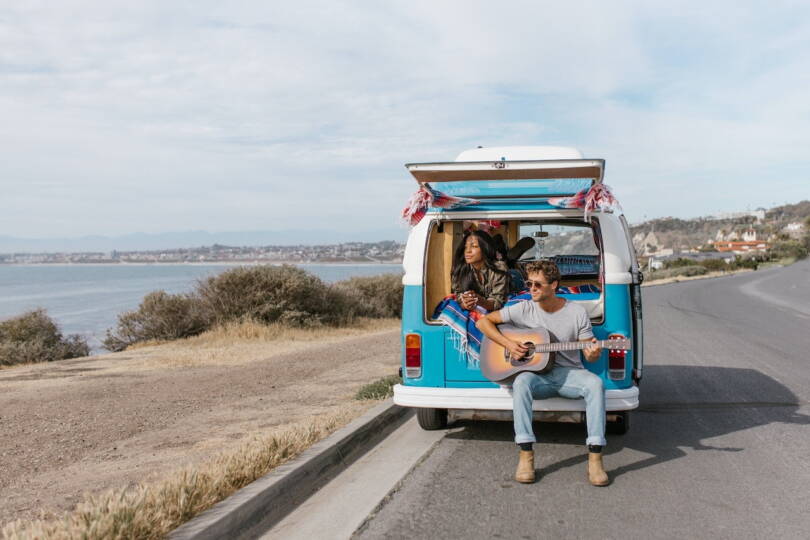Caravans and motorhomes alike have been a permanent fixture on UK motorways and country roads for decades now. They represent a golden age of domestic travel, being the perfect vehicle for family getaways and rural retreats. Today, the concept of the motorhome has, if anything, increased in popularity, thanks to a resurgence in interest from younger generations. But the reason for this resurgence in interest is less obvious than it might initially seem.
Younger people are becoming more interested in motorhomes not just to explore more of the UK and Europe by road, but also as a complete alternative to accommodation. A combination of factors, from the rising cost of homes and mortgages to the rise of remote working opportunities, have fed into a growing community of ‘van-lifers’: people who adopt a minimalist lifestyle in motorhomes-cum-tiny-homes.
Motorhome living is becoming ever-more appealing as the cost of living continues to rise, a fact reflected by a marked increase in motorhome sales in the UK. But for someone considering a transition to van or motorhome living, what are the legal and logistical considerations you need to make – and is it legal to live in one at all?
Can You Legally Live in a Motorhome?
First of all, a common question is whether or not it is legal to make a motorhome or van your primary residence. Simply put, there is no law preventing you from living in your motorhome. There are some specific laws that stipulate the ways in which you can legally live in your motorhome – more on which later –, but otherwise, you are required to meet basic legal requirements for the motorhome itself.
If you are driving your motorhome, or do not have a permanent pitch for it to remain parked in, your motorhome must be road legal. You must ensure you have motorhome insurance in order to legally drive your motorhome, and it must have a valid MOT certificate.
Requirements and Permissions for Motorhome Living
While making your motorhome your primary residence is straightforwardly legal, there are some less straightforward considerations you need to make to ensure your living situation is compliant with UK law. Essentially, you are prohibited from staying on private land without express permission from the landowner – a move to prevent wild camping and vagrancy.
The new Police, Crime, Sentencing and Courts Act 2022 has also expanded police powers to break up encampments the disrupt or disturb the peace. Public and council-owned spaces can prove difficult to stay in for this reason. As such, finding legal and safe places to park up can be the biggest legal hurdle to jump for the prospective van-lifer.
The Logistics of Living in a Motorhome
Legality aside, living in a motorhome or van conversion presents new logistical difficulties, largely in the form of modern conveniences and working conditions. Many motorhomes are suitable for safe and comfortable working, but will require additional investment to ensure strong wi-fi signal is always available.
Power is a key concern, as access to mains electricity is limited for motorhomes. Leisure batteries are available, but cannot be counted on to run high-wattage appliances such as microwaves and kettles.









